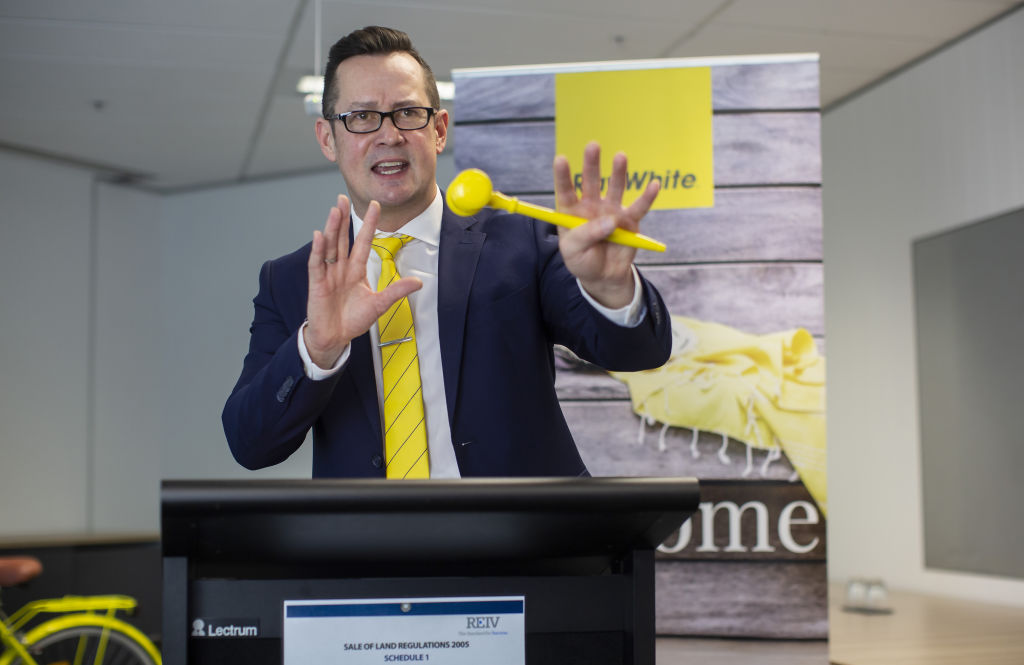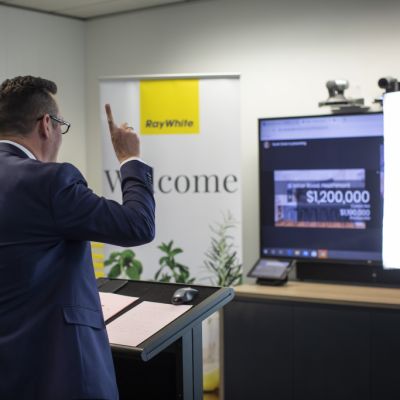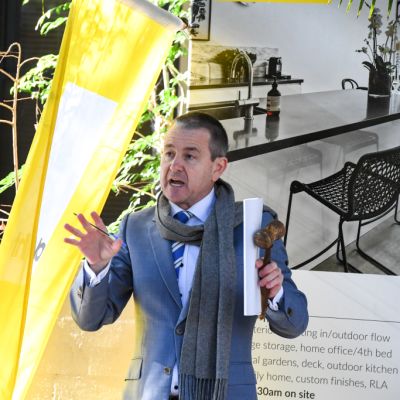Melbourne property market to continue under stage four restrictions

Melbourne’s property market will be able to continue to operate under tough, new stage four restrictions introduced by the Victorian government on Sunday in an effort to slow the spread of coronavirus.
But property sales in major regional cities such as Geelong and Ballarat will face a similar market to Melbourne, with stage three restrictions to be introduced across the rest of the state from Wednesday.
Under both stage three and four restrictions, only one-on-one private inspections and online auctions will be able to go ahead, allowing buying and selling to continue.
After more than three weeks of stage three restrictions in Melbourne and the Mitchell Shire, Premier Daniel Andrews announced the restrictions for Melbourne on Sunday afternoon and declared a state of disaster in Victoria.
Restrictions on the Melbourne property market remain unchanged under the tougher new directions — which came into force in Melbourne 6pm on Sunday and in regional areas — according to a summary of restrictions released on Sunday afternoon.

Real Estate Institute of Victoria president Leah Calnan said it appeared it would be business as usual for those working in real estate.
“The industry knows we’re extremely privileged to be able to work,” Ms Calnan told Domain on Sunday. “We’ll continue to maintain the highest standards and processes to ensure our teams and consumers are safe at all times.”
Ms Calnan said although regional Victorian home sales would face tougher restrictions, many had already adopted online auctions to ensure Melbourne buyers could bid.
The industry had also been booking private inspections with people from Melbourne who were unable to go to regular open-for-inspections.
“It’s not going to be a large change,” Ms Calnan said. “It’s really going back to where we were a few months ago when restrictions were first introduced.”
The introduction of stage four restrictions followed news 671 more people had been diagnosed with coronavirus and another seven people had died, in the previous 24 hours.
Under stage four, Melburnians will face a curfew from 8pm to 5am and will not be able to travel more than five kilometres from home unless visiting a partner, going to work or for another essential reason.
Exercising outside will also be reduced to an hour a day, and only one person can shop from each household, once a day.
Those living outside Melbourne will join Mitchell Shire with stage three restrictions, meaning they can only leave their homes for four reasons: going to work or school, for care or care-giving, to shop for necessities and for daily exercise.
No visitors are allowed in homes and masks must still be worn by all Victorians outside their homes.
Barry Plant chief executive Mike McCarthy said on the surface the announcement was good news.
“We’re still trying to understand the implications [for Melbourne] of it all,” Mr McCarthy said.
He said there needed to be some clarification around the five-kilometre travel zone as people may not be able to inspect homes they want to buy, and some agents may not be able to travel to houses for private appointments to inspect a property.
Mr Andrews has flagged there will be further announcements on Monday regarding restrictions on workplaces, with businesses to be divided into three categories: business as usual, reducing output/ fewer shifts or closed/working from home.
He noted essential businesses such as supermarkets, butchers and chemists would not be affected, but other businesses would be subjected to output restrictions.
Mr Andrews blamed community spread of coronavirus for the new restrictions, saying staying in stage three restrictions would see the state locked down for another six months.
“Our health experts tell us the measures we’ve introduced are working. But too slowly,” Mr Andrews said. “The current rate of community transmission – mystery cases that cannot be traced back to work or home – is far too high.
“There is no alternative, this is a very difficult day, but this is the decision I’ve made to keep people safe,” he said.
We recommend
We thought you might like
States
Capital Cities
Capital Cities - Rentals
Popular Areas
Allhomes
More










